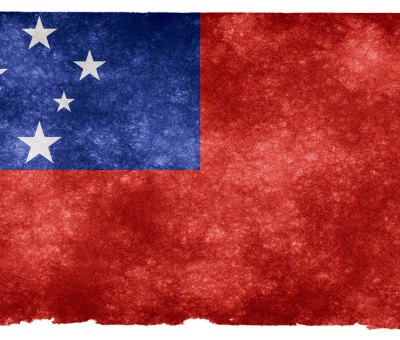
A New Party and a New — Female — Leader for Samoa…
With funding from the United States Agency for International Development, the International Republican Institute (IRI) is working to promote democratic…
Once considered the Pacific Islands’ most stable democracy, in 2021 Samoa’s ruling political party and the world’s second-longest ruling head of state were unseated. In their place, Samoa’s first female prime minister was elected as the head of the country’s first new political party since independence. IRI is working to support this new two-party political environment and the women who feature prominently among its leadership.
The Human Rights Protection Party (HRPP) came to power in the mid-80s after Samoa gained independence. Tuilaepa Sailele Malielegaoi was elected as Prime Minister by HRPP in 1994 and became the second-longest serving head of state in the world until 2021. After a series of controversial actions, his deputy prime minister, Fiame Mata’afa, broke with his government and was asked to lead the newly created Faʻatuatua i le Atua Samoa ua Tasi (FAST) political party. At the polls on April 9, FAST won a small majority of parliamentary seats, and after four months of legal wrangling, election result challenges, petitions, and appeals, Samoa’s Court of Appeal declared FAST as the new government. The newly elected Prime Minister Fiame was Samoa’s first female prime minister, the nation’s first new prime minister in the 21st century and only the second female head of government in the Pacific Islands.
The historical importance of these multiple firsts is highly significant. Despite men and women having guaranteed equal voting rights, the Pacific Islands have among the lowest levels of female representation in government in the world. A combination of antiquated laws, cultural norms and geographic challenges often prevent women from contesting national elections and seeing success at the polls. For those that are successful, women oftentimes are assigned subordinate roles or placed in positions with little ability to effect change in their country.
For women to see real progress across the Pacific Islands, they must have the ability to support and empower one another. IRI works to facilitate this through its Pacific Islands Leadership Training Schools (LTS) by providing skills training in leadership, advocacy, public speaking, campaigning and teamwork. Graduates from Samoa become part of IRI’s Pacific Islands LTS alumnae network and connect with rising women leaders across 11 other Pacific Island nations.
In addition, IRI provides Empowered Women Empower Women subawards available only to LTS alumnae. Through these awards, IRI’s Alumnae in Samoa has empowered women who have been adversely affected by the COVID-19 pandemic and subsequent border closings. By partnering with Apelu Sports and their EmpowerME program, IRI and LTS alumnae have been able to harness the power of sports, teamwork and comradery to help women combat the rise in gender-based violence that has resulted from the collapse of tourism and loss of livelihood due to the international border closures. For many women in Samoa’s communities, these are the first training opportunities of their kind. Furthermore, by taking ownership of these activities, Samoa’s alumnae can build on the important leadership skills they developed through the LTS.
Since 1984, IRI has worked across the globe to strengthen political parties because history has shown that democracies flourish when governments put citizens first. This is made possible when voters have choices, and party platforms and governments are centered around issues rather than personalities and when they strive to include women, youth, and other marginalized groups. IRI will be a continuing partner in strengthening Samoa’s new multi-party political environment and to help ensure future elections continue to be free, fair and genuinely competitive.

With funding from the United States Agency for International Development, the International Republican Institute (IRI) is working to promote democratic…
Notifications